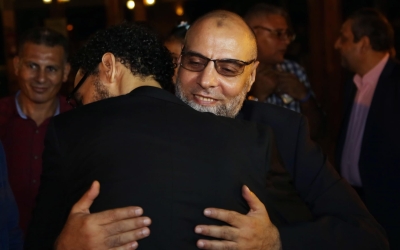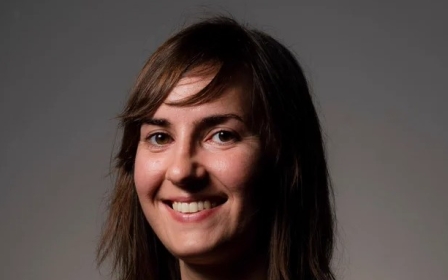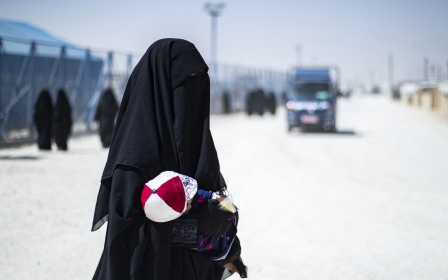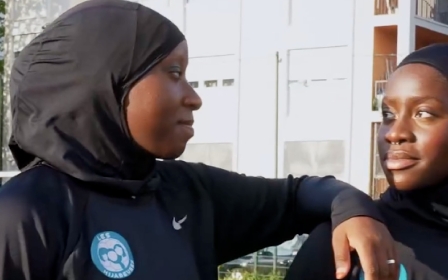France: Journalists decry 'worrying' arrest of investigative reporter
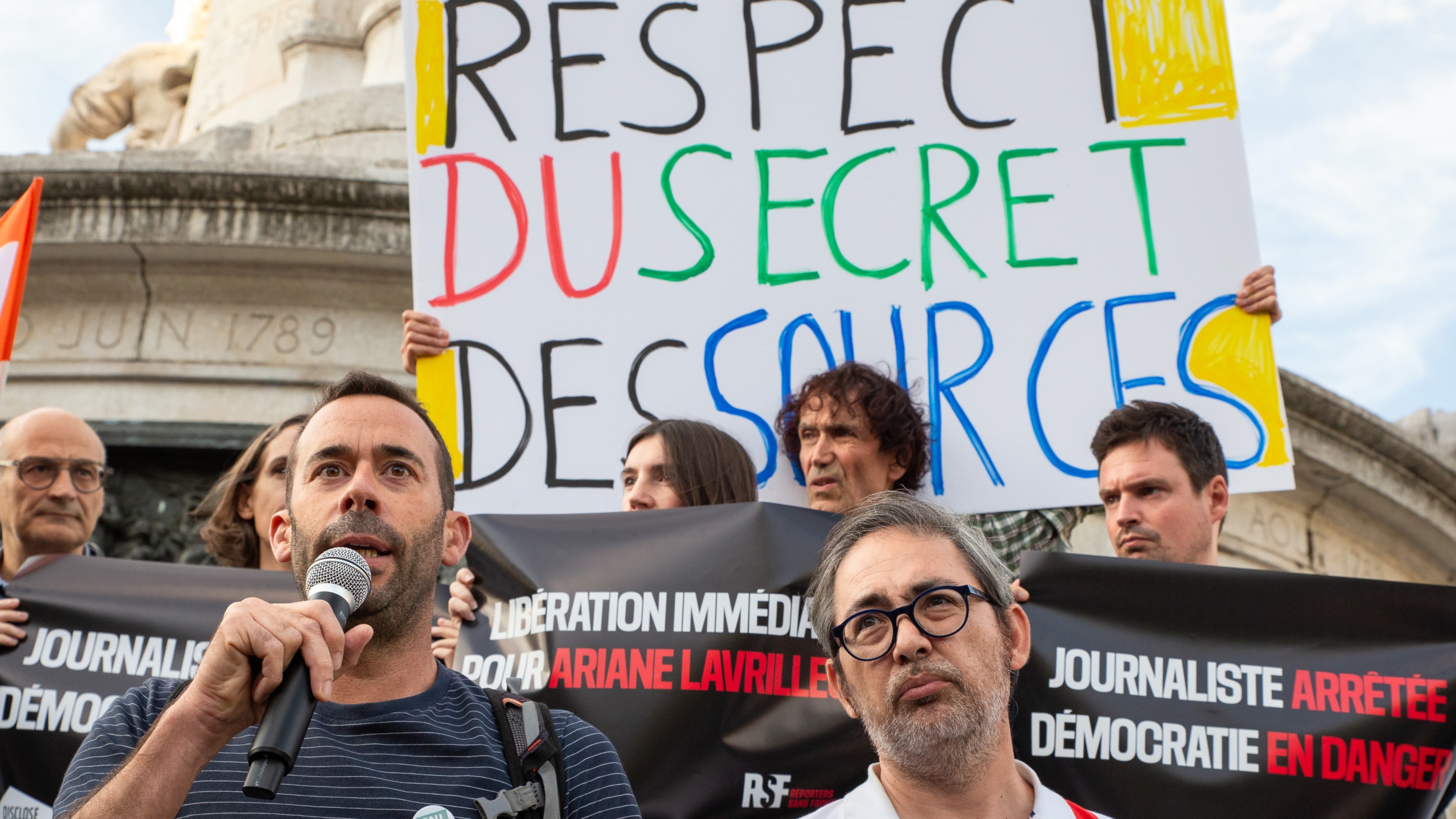
French journalists have reacted with deep alarm to the arrest of investigative reporter Ariane Lavrilleux, warning that it threatens an "essential pillar of democracy".
Lavrilleux was detained on Tuesday morning, reportedly in connection with her reporting on alleged French complicity in extrajudicial killings of civilians in Egypt's 'Western Desert between 2016 and 2018.
After 39 hours in police custody, she was released.
In a photo posted on X (formerly Twitter) she appeared smiling, fist raised. The photo was accompanied by a short text: "I'm free, thanks for the support!"
The release came after outraged journalists staged demonstrations across France, calling for her release.
New MEE newsletter: Jerusalem Dispatch
Sign up to get the latest insights and analysis on Israel-Palestine, alongside Turkey Unpacked and other MEE newsletters
In Paris, many journalists gathered at Place de la Republique, while journalism unions accused the police of treating her "like a criminal for the simple fact of having exercised her profession".
"Journalism is an essential pillar of democracy," said Gaele Joly, a reporter for Radio France, speaking to Middle East Eye.
"Some governmental communications departments, such as the Paris prefecture recently, no longer hesitate to ask you to reveal the identity of your sources when our investigations implicate them. This is what happened to me a few weeks ago."
At 6 a.m. on 19 September, police officers from the General Directorate of Internal Security (DGSI) - preceded by an examining magistrate - arrived at Ariane Lavrilleux’s home in Marseille to notify her that she was to be taken into police custody. Her apartment was then searched for almost 10 hours.
She was taken to the Marseille police headquarters for questioning and spent the night there, sleeping in a cell. A former member of the army has also been taken into custody in connection with this case.
A judicial investigation, opened by the Paris public prosecutor's office for "compromising national defense secrets", has been underway since July 2022, following a complaint lodged by the French Ministry of Defence.
'It's very worrying. The French authorities have clearly taken a new step towards criminalising investigative journalism'
- Elie Guckert, journalist
"It's very worrying. The French authorities have clearly taken a new step towards criminalising investigative journalism," explains freelance journalist Elie Guckert.
Guckert, who co-authored with Ariane Lavrilleux a report for investigative news site Disclose into sales of French military equipment to Russia, said pressures on journalists had only increased since Emmanuel Macron became president in 2017.
"Journalists have already been summoned by the DGSI and threats of condemnation issued," he said
"But now we've gone beyond that, we're talking about a journalist whose home was searched for 10 hours. To my knowledge, this is unprecedented. The question is how far the government intends to go, and how far it is prepared to flout the confidentiality of journalists' sources, which is guaranteed by French law."
Threat to press freedom?
In an investigation for Disclose, Lavrilleux revealed that the French state supplied the Egyptian government with intelligence, which was used by military operations that were targeting and killing civilians.
According to Disclose, French judges are also looking into four other investigations by the organisation, including the revelations of the sale of 30 Rafale jets to Egypt, as well as those on war material delivered to Russia by France and used in the invasion of Ukraine, an investigation into arms deliveries to Saudi Arabia, and finally, an article proving that France turned a blind eye when the United Arab Emirates secretly sent arms to Libya to serve General Khalifa Haftar's military ambitions.
"The invocation of defence secrecy here clearly has nothing to do with any desire to guarantee national security, but in reality seems to serve to abuse the prerogatives of the state to prevent journalists from telling the French people what the state is doing in their name without their knowledge," said Guckert.
Interviewed by a journalist working for Mediapart on Wednesday, government Spokesman Olivier Véran refused to comment on the Ariane Lavrilleux case.
"The nature of your question is not adapted to the context" of the Ministerial Council, he replied to a journalist who asked him if it was "normal for a journalist to spend a night in a cell in a democracy".
Véran said: "I'm the spokesman for the government, so when I have to say things, I say them with the certainty that it's the government's word and that we have the necessary elements for that."
The release of Ariane Lavrilleux will not be enough to ease the concerns of French journalists, especially freelancers who very often work without the support of an editorial office.
Member of the European Parliament for Europe Ecologie Les Verts Mounir Satouri said Lavrilleux's arrest marked: "The beginning of the end for press freedom."
"France is setting the worst example, and sending a message to authoritarian regimes. There is no such thing as a democracy without press freedom," he said.
"And is there freedom of the press without protection of sources? Of course not. If you cut journalists off from their sources, you prevent them from working."
This article is available in French on Middle East Eye French edition.
Middle East Eye delivers independent and unrivalled coverage and analysis of the Middle East, North Africa and beyond. To learn more about republishing this content and the associated fees, please fill out this form. More about MEE can be found here.


